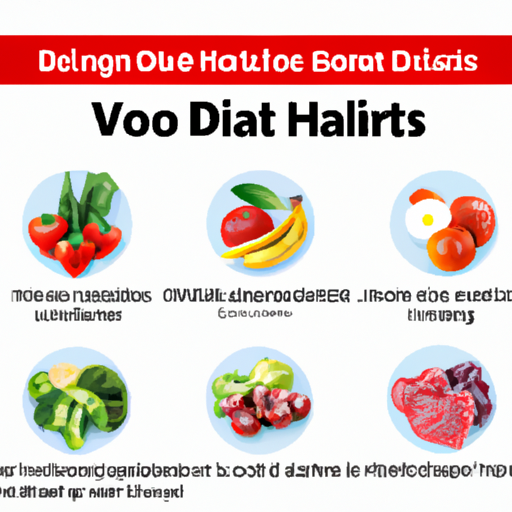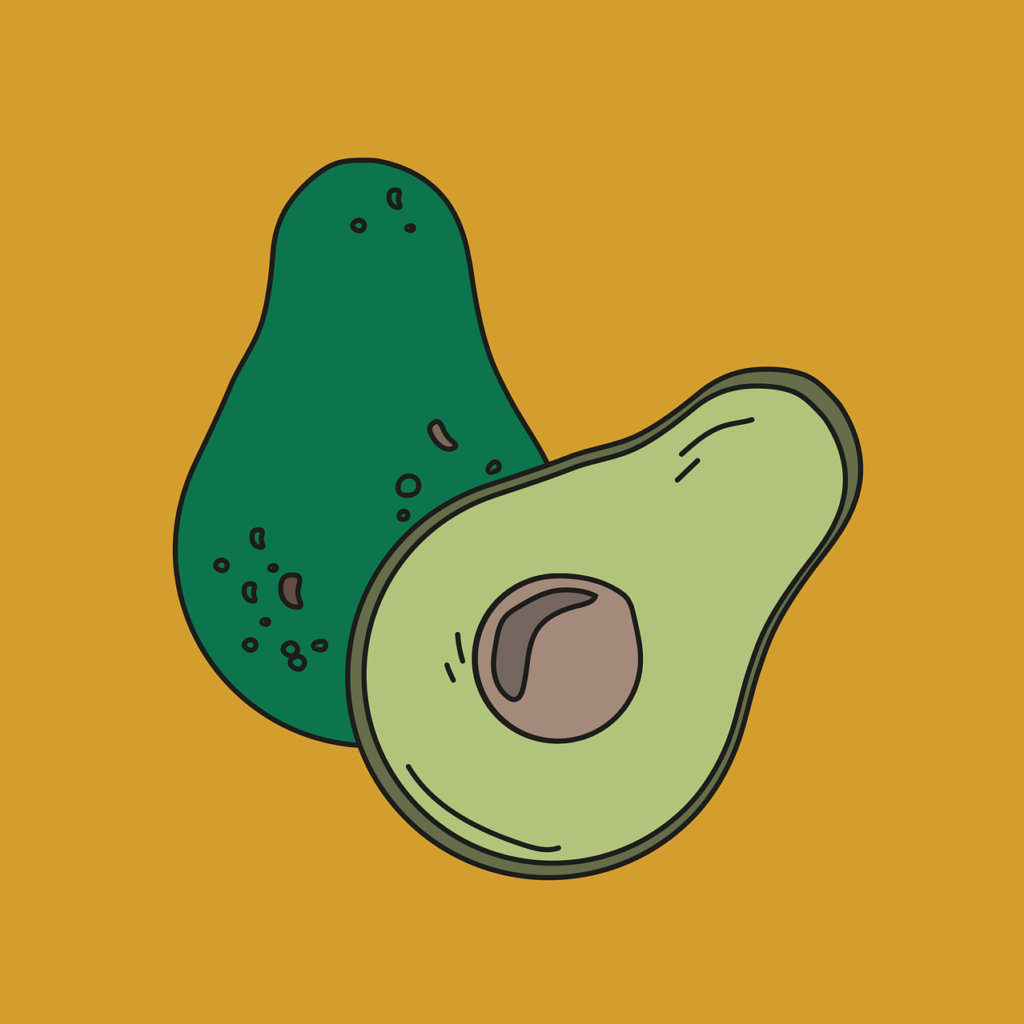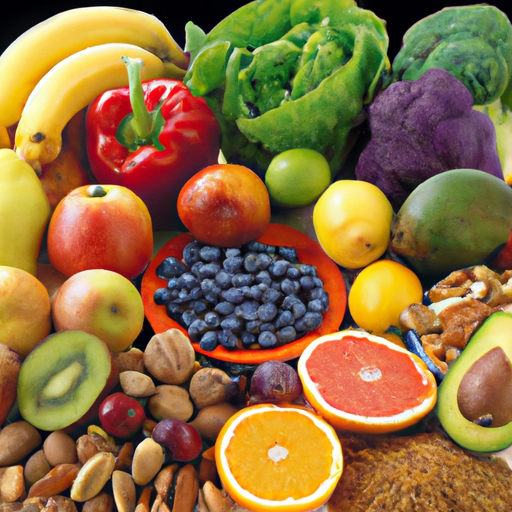Are you looking to improve your heart health? Look no further! Nutrition plays a vital role in maintaining optimal heart health, and a balanced, heart-healthy diet can make all the difference. By incorporating foods such as salmon, broccoli, avocado, whole oats, almonds, leafy greens, and blueberries into your meals, you can provide your body with essential nutrients like Vitamin D, fiber, polyunsaturated fats, antioxidants, magnesium, and potassium. From grain bowls to sandwiches, oatmeal to smart snacking, there are plenty of delicious and creative ways to include these heart-healthy foods in your diet. Additionally, it’s important to be mindful of other factors such as limiting sodium intake, watching portion sizes, and prioritizing exercise. Take charge of your heart health today with a balanced diet that will nourish both your body and your spirit!

The Importance of Nutrition for Heart Health
Maintaining optimal heart health is essential for leading a long and healthy life, and nutrition plays a crucial role in achieving this goal. A balanced, heart-healthy diet provides the necessary nutrients and supports overall heart health. By incorporating heart-healthy foods into your diet, you can reduce the risk of cardiovascular diseases and promote a healthier heart.
Role of nutrition in maintaining heart health
Nutrition is a key factor in maintaining heart health. The foods we eat have a direct impact on our cardiovascular system. A diet that is high in saturated fats, trans fats, cholesterol, and sodium increases the risk of developing heart diseases, such as coronary artery disease and hypertension. On the other hand, a diet that is rich in heart-healthy nutrients and low in unhealthy fats can decrease the risk and provide numerous benefits for your heart.
Benefits of a balanced, heart-healthy diet
A balanced, heart-healthy diet offers several benefits for your heart. It can help lower cholesterol levels, decrease blood pressure, reduce inflammation, and improve overall heart function. By incorporating heart-healthy foods into your everyday meals, you can improve your cardiovascular health and decrease the risk of heart-related illnesses. Let’s explore some key nutrients and foods that are beneficial for your heart.
Heart-Healthy Nutrients and Foods
Key nutrients for promoting heart health
Several nutrients play a crucial role in promoting heart health. These nutrients include Vitamin D, fiber, polyunsaturated fats, antioxidants, magnesium, and potassium. Let’s delve into the benefits of each nutrient and the sources from which you can obtain them.
1. Vitamin D
Vitamin D is a vital nutrient for heart health. It helps regulate blood pressure, reduces inflammation, and improves overall heart function. You can obtain Vitamin D through sun exposure, as your skin produces it when exposed to sunlight. Additionally, Vitamin D can be found in certain foods such as fatty fish like salmon, fortified dairy products, and egg yolks.
2. Fiber
Fiber is another essential nutrient for maintaining a healthy heart. It helps lower cholesterol levels, regulates blood sugar levels, and promotes a healthy digestive system. Excellent sources of fiber include whole grains, fruits, vegetables, legumes, and nuts. Incorporating these foods into your diet can increase your fiber intake and support heart health.
3. Polyunsaturated Fats
Polyunsaturated fats are healthy fats that provide numerous benefits for your heart. They help lower cholesterol levels, reduce inflammation, and decrease the risk of heart diseases. Foods rich in polyunsaturated fats include fatty fish like salmon and trout, nuts and seeds, vegetable oils such as olive oil and sunflower oil, and avocados.
4. Antioxidants
Antioxidants are crucial for heart health as they help protect your heart from oxidative stress and inflammation. They also play a role in preventing the buildup of plaque in the arteries. Foods that are rich in antioxidants include berries, dark chocolate, leafy green vegetables, and nuts. Incorporating these antioxidant-rich foods into your diet can provide significant benefits for your heart.
5. Magnesium
Magnesium is an essential mineral that promotes heart health by regulating blood pressure and maintaining normal heart rhythm. Good sources of magnesium include leafy green vegetables, nuts, seeds, whole grains, and legumes. Incorporating these magnesium-rich foods into your diet can support your overall heart health.
6. Potassium
Potassium is a mineral that plays a vital role in maintaining heart health. It helps regulate blood pressure, supports normal heart rhythm, and aids in the proper functioning of muscles and nerves. Excellent sources of potassium include bananas, leafy greens, sweet potatoes, and citrus fruits. Including these potassium-rich foods in your diet can have a positive impact on your heart health.

Incorporating Heart-Healthy Foods into Your Diet
Now that we understand the importance of heart-healthy nutrients, let’s explore some delicious ways to incorporate these foods into your diet.
1. Grain bowls
Grain bowls are a popular and convenient way to incorporate heart-healthy foods into your meals. Start with a base of whole grains like quinoa or brown rice, and top it with a variety of heart-healthy ingredients such as vegetables, lean proteins like grilled chicken or tofu, and a source of healthy fats like avocado or nuts. This versatile dish allows you to customize your meal while ensuring you get a variety of nutrients for a healthy heart.
2. Sandwiches
Sandwiches can be a great way to incorporate heart-healthy ingredients into your meals. Opt for whole grain bread instead of white bread, and fill your sandwich with lean proteins like turkey or chicken, plenty of fresh vegetables, and a source of healthy fats like avocado or hummus. By making small swaps, you can transform a simple sandwich into a heart-healthy meal.
3. Oatmeal
Starting your day with a bowl of oatmeal is an excellent way to boost your heart health. Oats are high in fiber, which helps lower cholesterol levels and promote a healthy heart. Add toppings like berries, nuts, and a drizzle of honey for added flavor and nutrients. This hearty breakfast option will keep you satisfied and support your heart health throughout the day.
4. Smart snacking
Snacking can be an opportunity to incorporate heart-healthy foods into your diet. Instead of reaching for unhealthy snacks like chips or cookies, choose nutritious options such as fresh fruits, raw vegetables with hummus, or a handful of nuts. These snacks provide important nutrients while satisfying your cravings.
Considerations for Heart Health
In addition to incorporating heart-healthy foods into your diet, there are other considerations to keep in mind for a healthy heart.
1. Limiting sodium intake
Excessive sodium intake can increase blood pressure and put a strain on your heart. To promote heart health, it is important to limit your consumption of processed and packaged foods, as they are often high in sodium. Instead, choose fresh ingredients and flavor your meals with herbs, spices, and natural seasonings.
2. Watching portion sizes
Maintaining a healthy weight is essential for heart health. It is important to be mindful of portion sizes and avoid overeating. Use smaller plates and bowls to control portion sizes, and listen to your body’s hunger and satiety cues. This will help prevent unnecessary weight gain and reduce the risk of heart-related illnesses.
3. Prioritizing exercise
Regular physical activity is crucial for maintaining heart health. Aim for at least 150 minutes of moderate-intensity exercise or 75 minutes of vigorous exercise per week. Find activities that you enjoy, whether it’s walking, cycling, swimming, or dancing. Regular exercise improves cardiovascular fitness, lowers blood pressure, and reduces the risk of heart diseases.
In conclusion, nutrition plays a vital role in promoting heart health. By incorporating heart-healthy foods rich in nutrients such as Vitamin D, fiber, polyunsaturated fats, antioxidants, magnesium, and potassium, you can support your heart health and reduce the risk of cardiovascular diseases. Additionally, being mindful of other considerations such as limiting sodium intake, watching portion sizes, and prioritizing exercise can further enhance heart health. Remember, small changes in your diet and lifestyle can lead to significant improvements in your heart health, so start making heart-healthy choices today!



